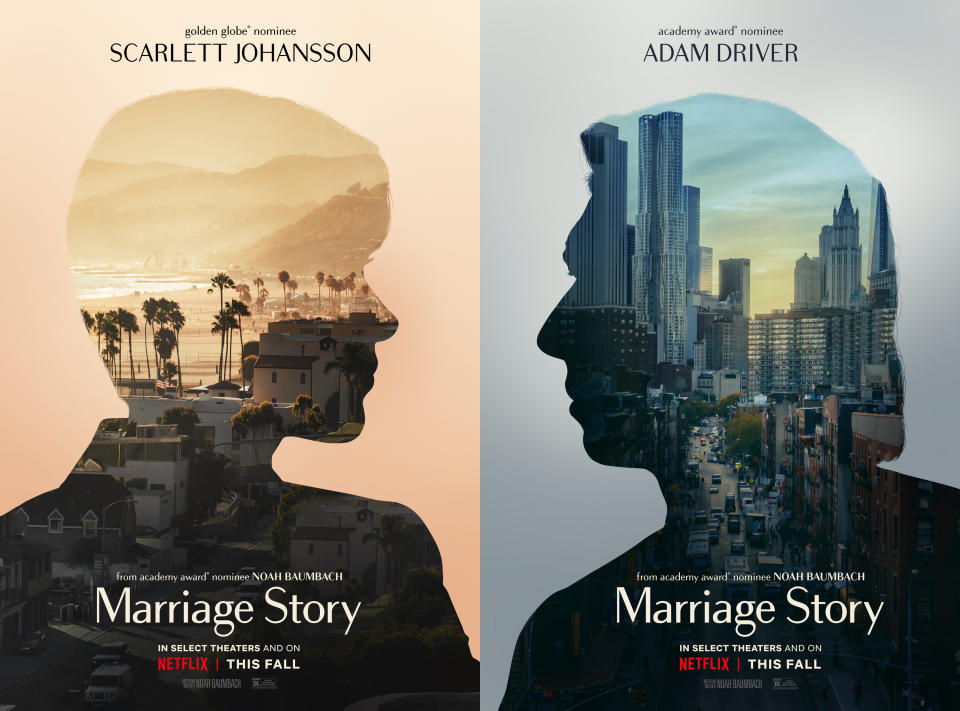At TIFF, Ron Howard and Brian Grazer Say Some Movies Don’t Need Wide Release and That’s OK

Click here to read the full article.
One day in at the Toronto International Film Festival, a curious theme is taking shape. Some small movies — a documentary, a thoughtful drama, a genre piece — are finding theatrical buyers. Meanwhile, bigger-budget, star-driven films are making a beeline for streaming services, with a nod to theaters on the way.
Magnolia Films bought worldwide rights to “Once Were Brothers: Robbie Robertson and The Band,” while Kino Lorber acquired the Jack London adaptation “Martin Eden” and IFC Films bought North America on Australian outlaw story “The True History of the Kelly Gang.”
More from IndieWire
'Sweetness in the Belly' Producers, Filmmaker Address Controversy Over Dakota Fanning Refugee Drama
TIFF Confirms Cineplex Policy Banning Netflix and Amazon From Primary Screening Venue
Meanwhile, Netflix will debut its in-house productions “Marriage Story” starring Adam Driver and Scarlett Johannson, “The Laundromat” with Meryl Streep, and Eddie Murphy in “Dolemite Is My Name.” While all will receive theatrical releases of three to four weeks, they’re produced with the clear intention of finding their audiences at home.
Even producers like Brian Grazer and Ron Howard, who were once synonymous with studio tentpoles, are cheerfully hitching themselves to the limited-release bandwagon. On Friday, they announced that their 2020 Netflix production, “Hillbilly Elegy” starring Amy Adams and Glenn Close, would receive a limited run — presumably with an eye toward the awards cycle.

“There is some beauty in this new distribution model in that it enables us to have a wide palette of storytelling possibilities of different sizes and shapes and time lengths,” Grazer told the TIFF keynote audience. “With Netflix, if they choose to send it out to the world theatrically it could be three to four weeks out in the world through theaters, then go right to streaming — which I think is a pretty great model. Classic stories, good stories, original stories are always going to have high value.”
In fact, he said, Netflix valued another project so highly that it paid $50 million — double the $25 million asking price — for an adaptation of Jonathan Larson’s play, “Tick, Tick … Boom!”, with director Lin Manuel Miranda and star Andrew Garfield attached.
At those prices, traditional distributors can’t possibly compete. It’s beyond the ken for independents, and even though studios may have the scratch, they’re less likely to spend it on a project like that when the top 10 films this year have been almost exclusively franchises and sequels.
Furthermore, while the streamers’ business models are murky without the benefit of box-office reports, or understanding exactly how content drives and retains subscribers, they can afford to offer more up front because they often aren’t obliged to offer back-end deals. This also lets them exploit the value in near-perpetuity on a platform that keeps the title in permanent circulation.
The one thing old-school distributors can offer that streamers can’t is a dedicated focus on the theatrical release. However, at this point even veterans like Grazer and Howard — a producer and director who teamed four decades ago with the single-minded purpose of making studio films — are deciding that traditional exhibition with its big screens and shared theatrical experience may not be all it was cracked up to be.
Howard said the Netflix model will better achieve his goal of providing fodder for water-cooler conversation about current social issues, adding that audiences don’t need to see films on the silver screen in order for them to be impacted by the work. In fact, “Hillbilly Elegy” might not have worked as a wide theatrical release.
“I feel like more people are going to see the film, particularly because of the nature of the film,” he said. “It’s a character-driven story, it’s great performance opportunities but not a tentpole.”
The upcoming launches of Disney +, Apple+, HBO Max, and other streamers could presumably accelerate this trend of top-flight producers deciding that they’d rather make their movies for the best price and let the exhibition chips fall where they may. However, another element that could determine the trajectory of this trend lies in some of the hottest titles premiering at TIFF over the next few days.
These include “The Goldfinch,” which Warner Bros. will release September 13; “Just Mercy,” another Warners title dated for December 25; “Hustlers,” which STX will release September 24 and “The Friend” which is seeking North American distribution; and “The Personal History of David Copperfield,” which Fox Searchlight acquired for North America shortly before the festival but will hold for 2020 release.
All of these films are standalone titles, with varying levels of awareness: “The Goldfinch” stars Ansel Elgort and Nicole Kidman, and “Just Mercy” stars Michael B. Jordan and Brie Larson; both are based on best-selling novels. “Hustlers” stars Jennifer Lopez and Constance Wu in a story based on a New York magazine article, while “The Friend” was based on an Esquire piece; and of course “David Copperfield” is classic Charles Dickens as adapted by writer-director Armando Iannuci (“Veep”).
However, after this summer’s wide-release failures of acquisitions “Last Night” (Amazon) and “Blinded By the Light” (Warner Bros.), particular attention will be paid to critical, audience, and box-office reactions for these studio releases — and how they might determine the streaming and theatrical futures of similar projects.
Sign up for Indiewire's Newsletter. For the latest news, follow us on Facebook, Twitter, and Instagram.

